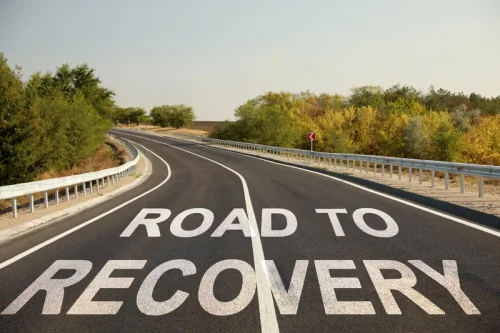
That condition, called arcus senilis, doesn’t typically occur until at least age 60. These findings may help people make lifestyle changes to promote healthy aging. Certain medications and excessive alcohol can work in tandem to suppress or amplify the effects of the other. Alcohol can diminish the effectiveness of medications, and medications can amplify the effect of alcohol on the body.
How alcohol affects perimenopause and menopause symptoms.
Elevated suicide risk is also a concern for those mixing antidepressants with alcohol, because alcohol may diminish the effect of antidepressants and make people more prone to act impulsively. There’s still time to snag a 3-piece luggage set for $81, 75% off a stick vacuum and an Apple iPad for under $300. Streicher recommended seeking out a menopause practitioner for help — and added that not all doctors are experienced with menopause or perimenopause. The Menopause Society offers an online tool to help you find an expert in your area. You’ll meet millions of fellow Reframers in our 24/7 Forum chat and daily Zoom check-in meetings. Receive encouragement from people worldwide who know exactly what you’re going through!

Alcohol and menopause

Another factor is that liver function may be impacted by estrogen, Streicher said. Theoretically, lower estrogen levels could get in the way of metabolizing alcohol, but she noted that this hasn’t been well studied. Plus, we’re always introducing new features to optimize your in-app experience. We recently launched our in-app chatbot, Melody, powered by the world’s most powerful AI technology. Melody is here to help as you adjust to a life with less (or no) alcohol.
- Your doctor can give you abuse screenings to see how your drinking has affected your health.
- Heavy alcohol consumption not only causes visible changes to our body that make us look older — it actually accelerates our aging at a cellular level.
- Not only did they lose weight — 50 pounds for her and 80 pounds for him — but she said it was the “best thing that has ever happened” to them.
- Alcohol causes your body to release more stress hormones, which speeds up the aging process.
Banner Health

Alcohol abuse can then worsen the symptoms of those conditions. Red wine has antioxidants called polyphenols that may help your cholesterol level and protect your blood vessels. If you drink it in moderation (about one glass a day), some does alcohol make you age studies show that it might be good for your heart. But too much can lead to an abnormal heartbeat and high blood pressure. Every alcoholic drink goes “straight to your head,” or at least to your brain.
MORE IN LIFE
These limitations make it hard to know how much to rely on studies that find health risks (or benefits) to alcohol consumption. In many cases, even moderate drinking (defined below) appears to increase risk. Despite this, less than half of the US public is aware of any alcohol-cancer connection. Changing the labels as suggested by the Surgeon General will require congressional action that may never happen. What’s not so well known is the effect of alcohol consumption on biological aging, specifically binge drinking, long-term drinking and type of drinks — such as beer, wine or liquor.
Alcohol’s Impact on DNA
As you get older, the effects of alcohol can become dangerous. The idea of having a drink to relax before bedtime may not be a good one, especially as you get older. Instead of lulling you into a restful night, alcohol can actually keep you from getting to sleep and lead to restless slumber. That can be particularly hard on seniors, who are already more likely to wake up often or have a sleep disorder like insomnia. The older you get, the longer alcohol stays in your system.
Alcohol’s effect on respiratory health, mental health and more
This essentially puts us at greater risk for developing diseases such as cancer. Some studies have heroin addiction also found associations between shorter telomeres and pulmonary disease and liver disease. Recent research indicates that excessive alcohol consumption can indeed speed up the aging process at a biological level. One study in particular showed that heavy alcohol drinkers and those with alcohol use disorder were significantly more likely to have shorter telomeres — an essential part of our chromosomes linked to aging and overall health. Alcohol consumption has previously been linked to the development of many diseases, including hypertension, cancer and liver disease, and previous work has explored its association with biological aging. However, research examining the impact of alcohol consumption over a long period of time, as well as binge drinking (more than five drinks in one setting) on biological aging has been limited.
- The answer is not so straightforward, based on a recently published study by researchers at Yale School of Medicine.
- Alcohol has long been considered a “social lubricant” because drinking may encourage social interaction.
- Alcohol abuse in older adults is a quiet but serious problem.
- Most medications and alcohol don’t interact well with each other.
- Learn which signs to look out for, and how to care for your well-being.
- Some older adults experience heightened feelings of sadness or anxiety after drinking alcohol, which may be linked to changes in brain chemistry and hormone levels.
After the 17-unit threshold is met, however, DNA starts to degrade quickly with each extra alcoholic beverage. Those who consumed 32 units of alcohol a week, for example, were three years older biologically than someone who drank 10. A number of experts have recommended revision of the guidelines toward lower amounts, as more studies have linked even moderate alcohol consumption to health risks. Predictably, the alcoholic beverage industry opposes more restrictive guidelines. Consuming certain types of alcohol over long periods of time as well as binge drinking both speed up biological aging, according to a Northwestern Medicine study published in the journal Aging. Alcohol may not only make you more likely to get sick as you age, it also can make common medical problems worse.

Alcohol Can Make You Feel Older, Too

Alcohol can affect the way your body fights off life-threatening illnesses like tuberculosis or pneumonia. Researchers are also studying the possibility that alcoholic liver disease might be caused, at least in part, by your immune system attacking healthy body tissues. One of the best things we can do to protect our health and longevity is to drink less alcohol.


Leave A Comment